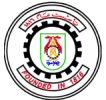Metallurgical Engineering embraces science and technology of making, shaping and treating of metals and alloys. Physics and chemistry of metals are the foundation of this specialty which is applied to industries including iron and steel making, aluminum industry, foundries, heat treatment shops and nuclear fuel cycle. Metallurgists in Egypt, total numbers about 2000, are employed in these industries as well as research centers, and inspection offices.
In Egypt, the first class of metallurgical engineers numbered 22 graduated from Cairo University in July 1962. Since then, the average number of graduates awarded has been 14 engineers each year. This number went as high as 46 in 1975. Only one student was graduated 1986. The courses in the semi-final and final years of study cover the general courses of different specialization of metallurgical engineering. The graduate feels at home wherever he goes, in extraction, shaping or treatment.
These courses are taught by a 20 faculty members, all with Ph.D. from reputed universities all over the world including USA, UK, Germany, Russia, Canada, and France.
The Metallurgical Engineering division is well equipped. The laboratory covers wet chemical analysis, optical metallographic, X-ray diffraction, scanning electron microscopy and mechanical testing. Also, good numbers of laboratories are available to students, undergraduate and postgraduate.
The relation of this division with industry is strong and fruitful for both sides. Applied research contracted with industry is taken as the subjects of M. Sc. and Ph.D. thesis and helps in the development of the industry. Short term projects in topics like local manufacturing, failure analysis and corrosion control are normal business of the faculty members. The output of these activities is published in conferences and journals, locally and internationally.
